by admin | Oct 26, 2021 | Sales & Shopping Guides
Fifth wheels are a popular choice for RVers looking to live in their unit. Whether you’re a snowbird leaving Pennsylvania for the winter, or you’re transitioning to full time, you’ll want to make sure you’re mobile with the perfect truck to tow a fifth wheel.
Through numerous innovations and the development of space-saving technology, RV living is more comfortable and more accessible than ever before. If you’ve already decided that a fifth wheel trailer is the best choice for you, then you might be wondering what truck best complements your new trailer.
At Juniata Valley RV, Pennsylvania’s camper-trailer and RV experts, and we also know a thing or two about how to tow a fifth wheel — that’s why we’re going to walk you through the top things to consider when purchasing a new truck, and we’ll also take a look at some of our favorite trucks on the market.
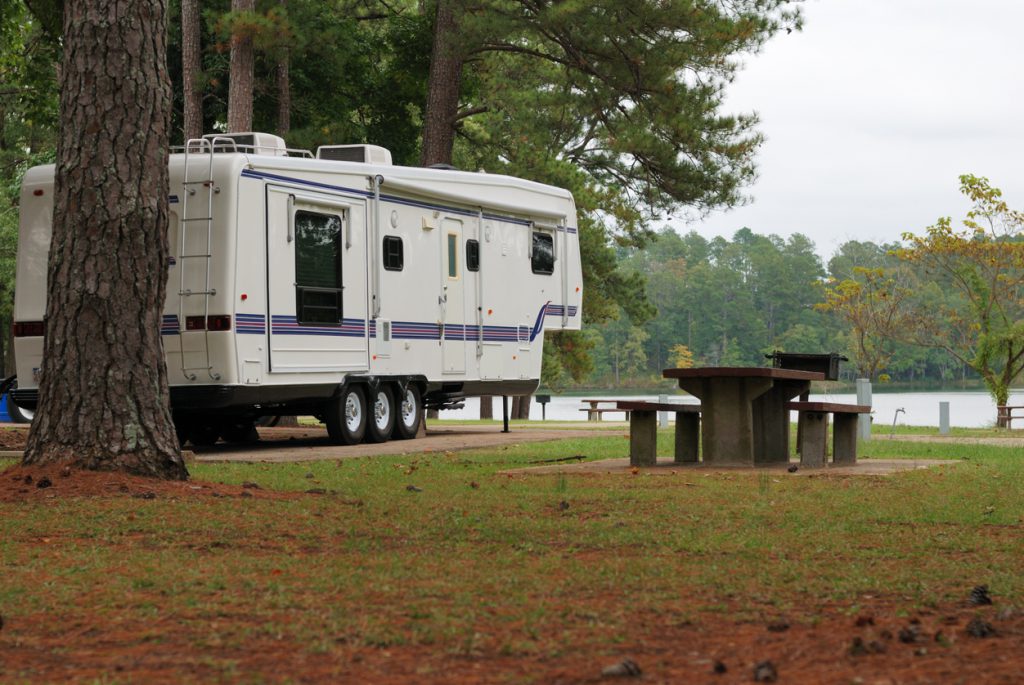
Research Before You Buy
There are a few factors to consider when deciding on a truck to tow your fifth wheel.
Bed Length
When considering a short-bed vs a long-bed truck, it’s important to confirm how much you’ll be driving the truck without the trailer. If you’re someone who will be doing a considerable amount of driving without your fifth wheel RV, you can consider a truck bed under eight feet. However, if you’re purchasing a truck specifically for towing, it’s smart to go with a longer bed — an eight-foot bed.
The benefits of a long bed include best turning clearance, reduced sway, convenient towing and a cost-effective setup. Another benefit to a long-bed truck is the hitch type — short-bed trucks require a sliding hitch which will manually or automatically (depending which type you use) slide to avoid impact during a sharp turn, while the longer bed provides more clearance during sharp turns and can utilize a simple, fixed-hitch setup.
If your truck-bed length is under six feet, you’ll need to purchase a sidewinder pin box setup as well as a fixed hitch. These Sidewinders and sliding hitches tend to be much more cost prohibitive when compared to a standard fixed hitch that you can use on a long-bed truck. To find out if you’d be more comfortable with a longer bed, the best thing to do is take a test drive with a truck able to tow a fifth wheel.

Gas vs. Diesel
While gas trucks are overall less expensive at the initial purchase, and don’t have all of the regular, costly maintenance that a diesel will, diesel engines do typically have a larger towing capacity, and they typically last longer in the end. If you’re going to be hauling your fifth wheel often and for long distances, a diesel engine might be the most cost-effective option for you in the long run. However, a gas vehicle, as long as it has the towing capacity, is also capable of towing a fifth wheel RV.
Payload Capacity
When trying to decide if you need a ½-ton, ¾-ton, or 1-ton truck, you first need to decide what size trailer you want. Weather you’ve already picked out your trailer or not, here is a general rule of thumb you can follow:
Fifth-wheel RV under 30 ft long = ½-ton truck
Fifth-wheel RV 39-ft to 30-ft long = ¾-ton truck
Fifth-wheel RV 40+ feet = 1-ton truck
Of course, to be sure you select the right size truck, you need to confirm your trailer’s loaded weight, and compare that number to your truck’s weight rating before locking in any purchases.
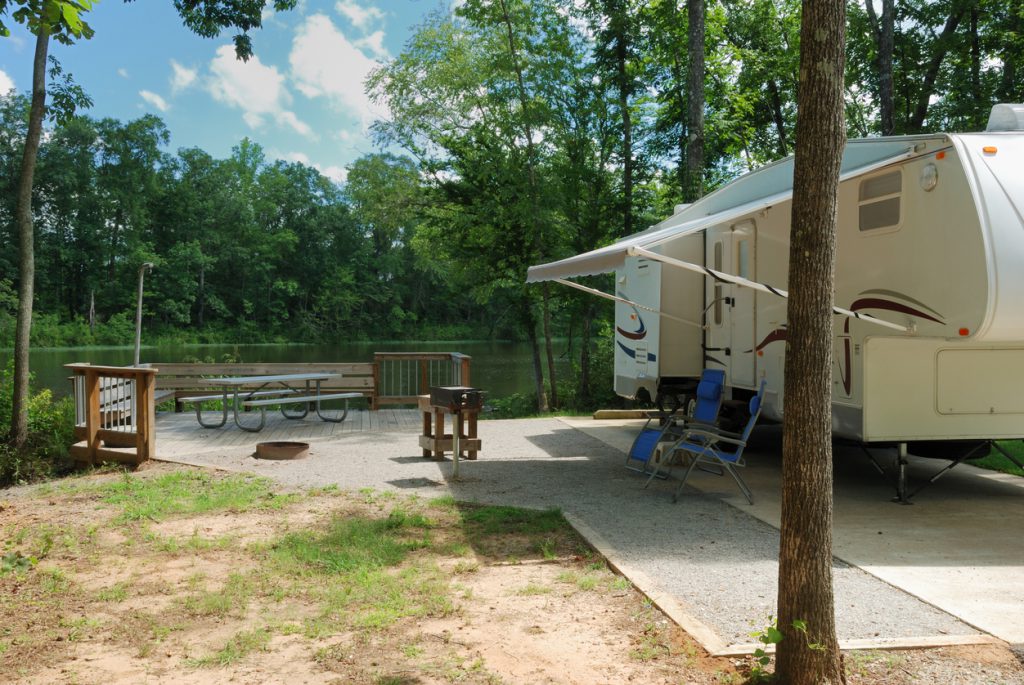
Dually vs. SRW
Going back to many of the previous answers here, the question “do I need a dually?” can be easily answered by analyzing how often and how far you plan to tow a fifth wheel RV. In short, a dually is not required to tow a fifth wheel. However, the dual wheels do help stabilize the truck and therefore reduce sway while towing. They also provide a higher weight capacity. That being said, dual rear wheels may affect your comfort during daily driving — in the end, the decision is up to you.
It’s important to note that some trucks also offer factory fifth wheel prep packages. If you’re buying a new truck from a dealer, this may be something you want to look into. Many packages are specific to the trailer manufacturer, so you’ll want to keep that in mind as you make any decisions about a factory-prep package. Now that you know the factors to consider when looking for a truck, let’s take a look at some of our favorite trucks for towing a fifth wheel RV.
The Ford F-350 is one of our personal favorites when it comes to fifth wheel towing. With the ability to tow trailers up to 33 feet and tow capacity of 18,000 pounds, you won’t have to worry with how heavy your trailer is. This truck also offers a Camper Package SRW, as well as many other features to make hauling a trailer safer and more convenient than ever before.
Remember talking about a factory-installed hitch? This Ram offers it. And even better, it boasts a 15,000-pound towing capacity. This powerful truck can be the premier companion to your fifth wheel RV.
When affordability is a concern, the Chevrolet Silverado may be the best truck to tow a fifth wheel. Fit with a diesel engine, a full-length bed and an installed hitch, this heavy-duty vehicle can tow a fifth wheel trailer up to 14,500 pounds.
Fit with a trailer-brake controller, rear-vision camera and forward-collision alert, this truck is one of the safest trailers for hauling a fifth wheel. Offering a 6,374-pound payload rating and a 18,500-pound tow rating, this 6.6L Duramax Turbo-Diesel will get the job done.
Pennsylvania’s Fifth Wheel RV Dealer
These are just a few of our favorite trucks to tow a fifth wheel as there are many trucks on the market today. The best thing to do is find a truck that works for your fifth wheel using the criteria outlined above. Find something that’s comfortable for you to drive, because your safety is the number-one priority.
If you’re still looking for your perfect fifth wheel RV, Juniata Valley RV offers a large variety of fan-favorite new and used fifth wheels.
Our dedicated staff is happy to answer any of your questions about the best vehicles for towing, and if you already have a truck, we’ll help you find a fifth wheel that’s compatible with your trucks towing capacity. Juniata Valley RV is ready to help you with your next adventure.
by admin | Oct 13, 2021 | RV Lifestyle & Tips
RVs have been around for decades and, like most things, misinformation has spread on the topic between word of mouth and the internet. Unfortunately, these myths are often accepted as facts, causing many people to shy away from trying the RV life for themselves. In our list, we’ll bust 15 of the most common RV myths!
You Need a Commercial License to Drive an RV or Motorhome
This is probably one of most common RV myths, although there is some truth to it. It all comes down to vehicle weight, not size as many people think. You can legally drive any vehicle under 26,000 pounds and tow anything under 10,000 pounds with a normal driver’s license in all 50 states. Most Class B and Class C motorhomes, as well as a multitude of towable RVs fall within this weight limit. If you plan on rolling heavier than that or unsure, check with a DMV in the state your license is issued. In Canada, anyone with a regular driver’s license can drive a motorhome up to 11,000 kgs.
Any Truck or SUV Can Tow Any Trailer
Each vehicle has a Gross Vehicle Weight Rating (GVWR) which is the maximum weight your truck or SUV can pull. The GVWR is set by the manufacturer and exceeding this limit puts your RV, your vehicle, and you at risk. In addition, stock models may not come with sufficient towing packages. Adding accessories like a proper hitch or airbags can add both safety and comfort when traveling.
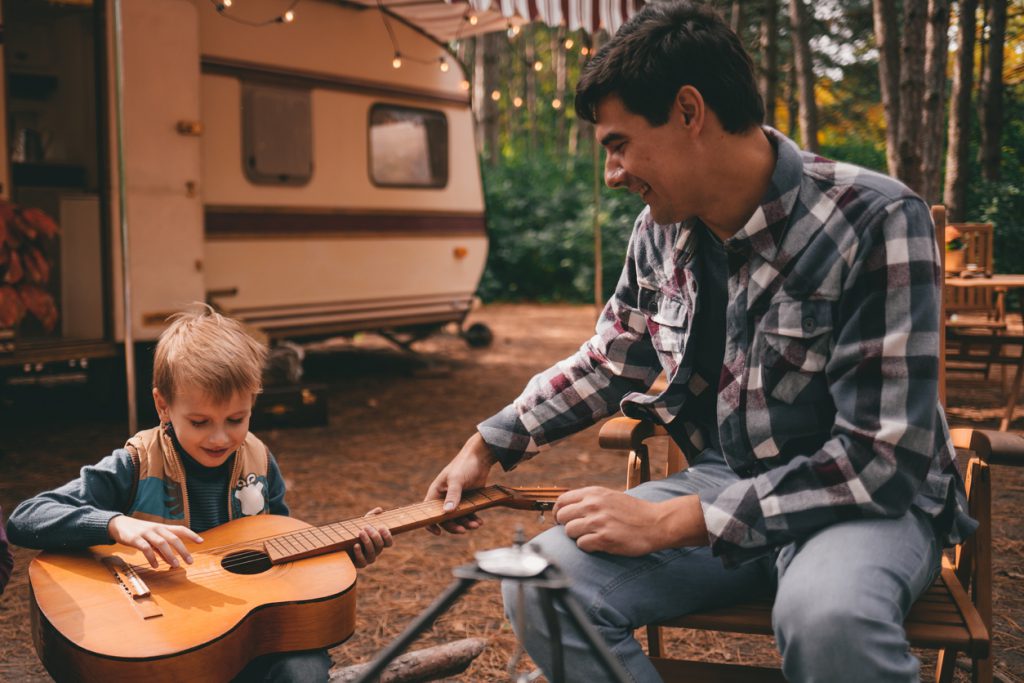
Only Retired People Buy RVs
Another extremely common RV myth is that RVs are for grandparents. More than half of all RVers in America are 55-years or younger, and 22% are between the ages of 18 and 34 years old. In recent years, the COVID-19 pandemic has driven a huge spike in interest in RV living. From millennials going on extended road trips to families hitting the road full time, RVs are for everyone!
RV Name Includes Length
Numbers in RV model names don’t usually represent the length, though it may happen by coincidence. Rarely, some manufacturers may include length in the naming convention, or this may happen by chance. Most RVs are built around standard sizes and not model-specific lengths.
Your RV Can Handle Year-Round, All-Season Use
This common RV myth is tied to the idea that RVs are insulated like traditional homes, which isn’t true. Most RV designs can’t cope with long periods in sub-zero temperatures. Even those designed for cold weather can only stay in freezing conditions for a few days. By the way, if you need your RV winterized here in Pennsylvania, give us a call!
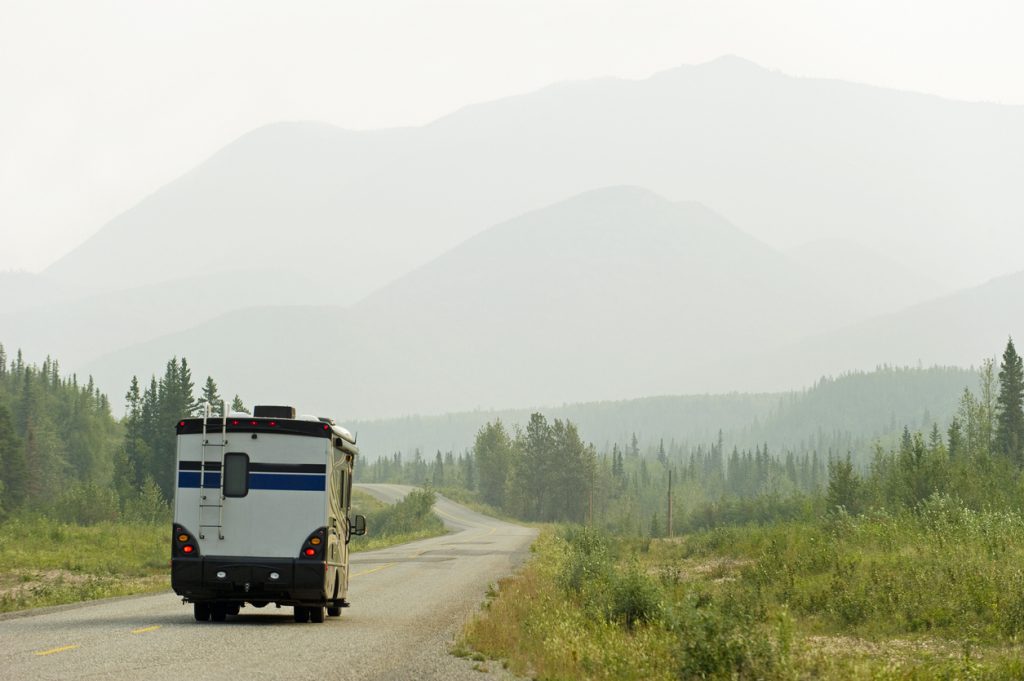
Motorhomes Have Terrible Gas Mileage
For being a home on wheels, RVs are not as bad on fuel as some would think. Although they’re admittedly large vehicles, RV manufacturers have worked hard over the years to increase fuel efficiency. On average, Class B motorhomes run at about 18-25 MPG which about the same gas mileage as a 6-cylinder Ford Mustang. Class C motorhomes are not too far behind in fuel performance, running between 18-25 MPG.
RVs are Too Expensive
Just like buying cars, RV pricing really comes down to model and features. And like automobiles, there’s an RV for every budget. The key difference is you have more versatility than an automobile, especially when traveling. Your kitchen can save on eating out, you always have your own bathroom, and there’s no need to pay the high cost of staying at a hotel. These benefits alone could be huge return on investments for those who travel or camp often, especially larger families. Buying used RVs also opens up more possibilities for making high-end models more affordable! Click here to view pricing for new and used RV models!
Generators Should Be Used Sparingly
This common RV myth is not only false, but could cost you! Generators need to be used for short periods of time and often to keep them in best working condition. Idle generators let moisture build up inside, which leads to damage when it’s next turned on. Keep using your generators if you want them to last!

An RV Doesn’t Need Sway Control
Sway controls that come with your truck may prevent the truck from rolling, but they’re probably not enough to keep the trailer from tilting. The larger the load, the more important it is to have the proper accessories to balance weight when towing.
You Have to Park in Overcrowded RV Campgrounds
Although some RV campgrounds can be very crowded, it depends on the time of year. There are also many other options outside of campgrounds. You can stay everywhere from high-end luxury RV resorts to remote boondocking in the middle of the wilderness. If you just need a place to sleep right off the highway between destinations, you can even park your RV or motorhome in a mall or Walmart parking lot.
You Can’t Park RVs in the City
RV parking is available everywhere. Even hotels are offering RV spots as options within larger cities to attract more guests to their resorts. You may not be able to just parallel park on a busy side main street, but you can set up camp within or near the city limits. This common RV myth is busted!
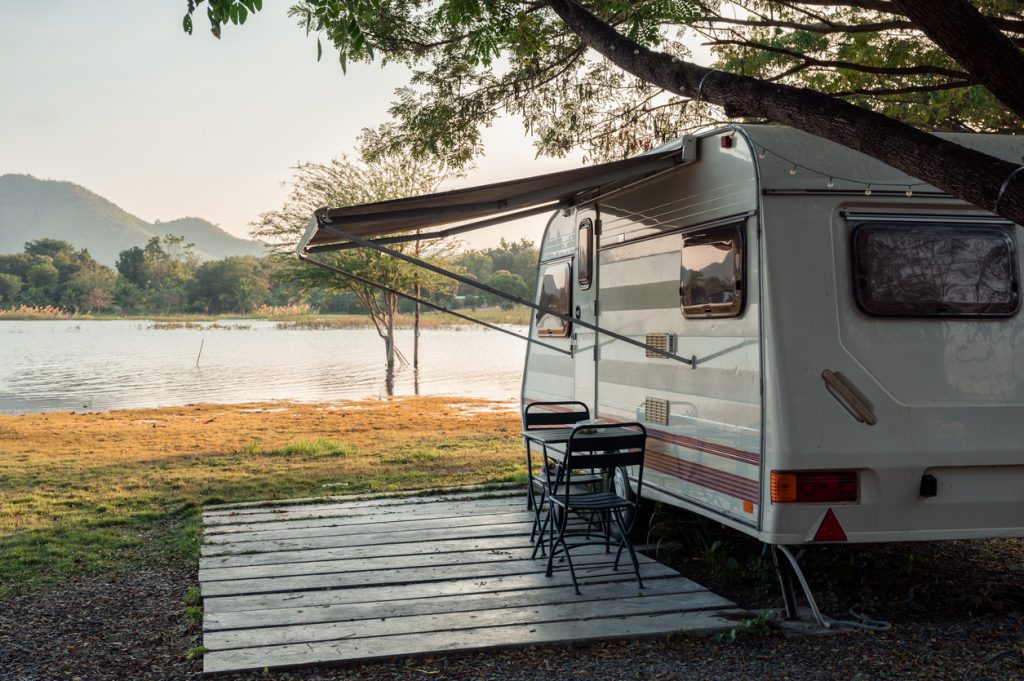
RVs Are for Minimalists Only
Even celebrities live in their RV when on the go and often prefer it compared to dealing with other lodging. There is no limit to the features and modern comforts you can have added to your RV model. For most, full-time living in an RV will mean having to be more intentional with space. However, like any life change, you get used to it and make more work with less!
RVs Don’t Need Winter Storage
If a RV is going to be idle for during the winter months, it needs to be in a covered storage space. Prolonged exposure to cold or extreme weather could cause extensive damage and consequential repairs. If you cannot afford or find indoor storage, you should consider buying a RV cover. These common RV myths develop from thinking RVs have the durability and construction of traditional homes. RVs are also vehicles which require care like automobiles when being stored outside.
RVs Are “Too Complicated”
As mentioned earlier, people of ALL ages are becoming owners of RVs and mastering RV life. With the endless number of resources online, there is no shortage on information to help you convert to RV life. From manufacturer resources on how to work your RV to blogs on where you can vacation and live with your RV, you just need a little time and determination to be a pro!

RVs Can’t Be Luxurious
Some may think of RVs as tiny popups too small to have any room to do anything comfortably. They may also have images of RVs parked in a dirty campground covered in bugs with the fire as the only source of warmth. For some boondockers, this may be the reality. However, most RVs and motorhomes come standard with many modern conveniences like TVs, beds, bathrooms, kitchens and even washer and dryers in the larger models.
As you can see, owning an RV can suit people of all ages and interests. It can empower you to live a freer travel life while staying in the own comfort of your home. Despite RVs and motorhomes having some limitations compared to traditional homes, they can be a great investment and can even become your permanent home.
Was there a common RV myth we didn’t bust on our list? Contact us at Juniata Valley RV, and we’ll be happy to answer your questions.









